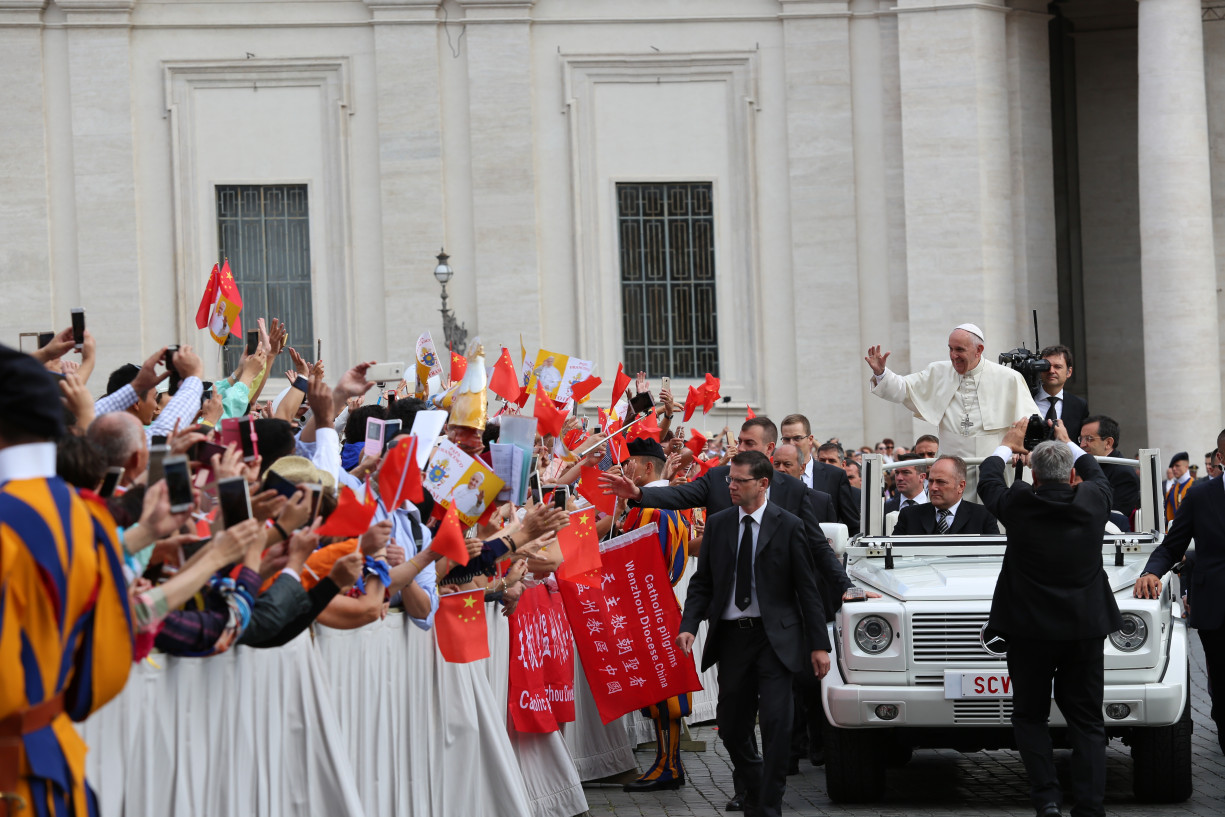- Feb 5, 2002
- 166,677
- 56,287
- Country
- United States
- Faith
- Catholic
- Marital Status
- Married
- Politics
- US-Others
The latest self-inflicted blow to the Vatican’s China policy came in mid-July, when the Holy See announced that Pope Francis had “recognized” Bishop Joseph Shen Bin as Bishop of Shanghai — despite the fact that the bishop had been “transferred” to China’s most important and prestigious diocese by the Xi Jinping regime, not by the pope. A few days later, America published a lengthy analysis of this Roman kowtow by Gerard O’Connell, its Vatican correspondent. O’Connell, for his part, drew on what Vatican News described as an interview with secretary of state Cardinal Pietro Parolin, but what was actually an auto-interview, the cardinal having sent the prewritten Q&A to the various instruments of Vatican Media for publication.
One striking revelation in that self-interrogation came when Cardinal Parolin noted that two previous transfers of bishops within China “were carried out without the involvement of the Holy See,” and said that “this way of proceeding appears not to take account of the spirit of dialogue and of collaboration established by the Vatican party and the Chinese party over the years.”
To which one could only respond, what “spirit of dialogue and collaboration”? Does the Vatican seriously believe that a totalitarian regime — one that conducts the world’s most extensive surveillance of its own population, builds genocidal concentration camps for ethnic and religious minorities, blocks international investigation of its role in the global breakout of COVID-19, and publicly announces that all religions in China must be “Sinicized” (i.e., subordinated to the regime’s concept of what China is and should be) — is truly interested in “dialogue and collaboration”? Even if that naïve assumption had been the Vatican’s starting premise in the negotiations that led to the 2018 agreement between the Holy See and the People’s Republic of China, shouldn’t China’s subsequent violations of that agreement and its crackdown on Catholics in Hong Kong and elsewhere have prompted a critical re-examination of the premise?
Has the Holy See learned nothing from the behavior of totalitarian regimes throughout history, all of which, without exception, have sought to subordinate Christian communities to regime ideology, be that Nazism, Leninism or “Xi Jinping Thought”?
Continued below.

 denvercatholic.org
denvercatholic.org
One striking revelation in that self-interrogation came when Cardinal Parolin noted that two previous transfers of bishops within China “were carried out without the involvement of the Holy See,” and said that “this way of proceeding appears not to take account of the spirit of dialogue and of collaboration established by the Vatican party and the Chinese party over the years.”
To which one could only respond, what “spirit of dialogue and collaboration”? Does the Vatican seriously believe that a totalitarian regime — one that conducts the world’s most extensive surveillance of its own population, builds genocidal concentration camps for ethnic and religious minorities, blocks international investigation of its role in the global breakout of COVID-19, and publicly announces that all religions in China must be “Sinicized” (i.e., subordinated to the regime’s concept of what China is and should be) — is truly interested in “dialogue and collaboration”? Even if that naïve assumption had been the Vatican’s starting premise in the negotiations that led to the 2018 agreement between the Holy See and the People’s Republic of China, shouldn’t China’s subsequent violations of that agreement and its crackdown on Catholics in Hong Kong and elsewhere have prompted a critical re-examination of the premise?
Has the Holy See learned nothing from the behavior of totalitarian regimes throughout history, all of which, without exception, have sought to subordinate Christian communities to regime ideology, be that Nazism, Leninism or “Xi Jinping Thought”?
Continued below.

The Vatican’s China deal unravels further
The latest self-inflicted blow to the Vatican’s China policy came in mid-July, when the Holy See announced that Pope Francis had “recognized” Bishop Joseph Shen Bin as Bishop of Shanghai — despite
